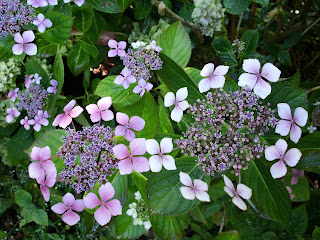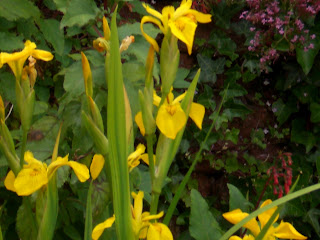I've just got in from an interesting evening down in Paignton at the Epicentre Book Cafe. It was a local author, Dave Hamilton, giving growing tips and publicising his new book on great money-saving ideas for the garden. It is evident from browsing through this book that Dave Hamilton has lots of experience and ideas, even for comparative 'old hands' like me.
According to The Ecologist website, below: "... (the book is) packed with useful nuggets of advice; Dave Hamilton’s tome, says Andy McKee, has everything you need to kick start a more self-sufficient way of life."
The article goes on to say: "Grow Your Own Food (for) Free (Well, Almost) by Dave Hamilton is all about gardening without spending money. Rather than dealing too much with actual gardening advice, which after all you can get from pretty much any book, the watchwords here are reusing and recycling. Whether it's planting a wildlife corner or making a tunnel cloche out of - well, nothing much, really - this book points you firmly away from the shops. It directs you instead to take a good look at what you've already got, or what other people are giving away free."
So, no need for me to say much more as 'nuff said and I'll be avidly reading this book under the covers in bed tonight, making notes, and hopefully adopting many of his ideas.






















































